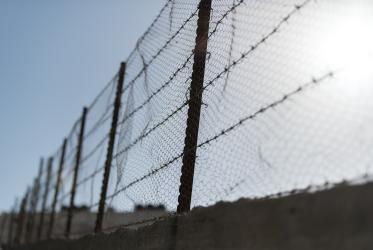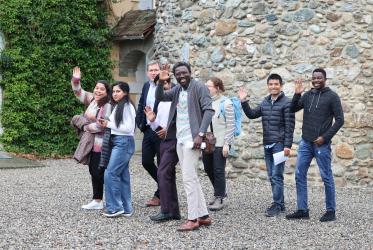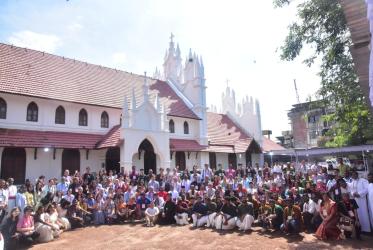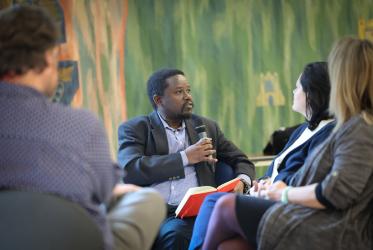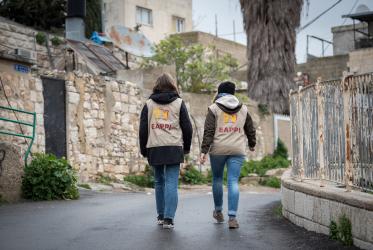Displaying 81 - 100 of 1256
Towards a Global Vision of the Church, Volume II
Explorations on Global Christianity and Ecclesiology, Faith and Order Paper 239
27 November 2023
WCC institute encouraged rethinking theology
23 November 2023
As floods rage in eastern Africa, church acts to save the people
22 November 2023
Embracing spirituality: a global response to climate challenges
17 November 2023
Violence against Palestinians is rising in the West Bank
16 November 2023
Blending local and global ecumenism in Asia
02 November 2023
Ahead of Her Time
Pan-African Women of Faith and the Vision of Christian Unity, Mission, and Justice
01 November 2023
A Guide for Churches on the Prevention of Obstetric Fistula
26 October 2023
At peace conference, WCC focuses on overcoming racism
26 October 2023
“The occupation can’t last forever”
25 October 2023
“They want to live without fear and constant harassment”
25 October 2023







